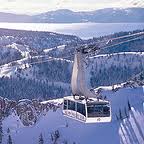A coach is important to develop group strength through the use of exercise, and to develop an exciting competitive spirit of the participants. Requires that participants felt that the presence of healthy competition and light competition. Therefore, Try to minimize the number of exercises on cohesion (of course, this does not mean that they should be completely excluded), and do not be afraid to introduce a training element of competition (“Who is faster?”, “Who exactly?”), the debate – is activates the participants and will benefit the whole group, to help you achieve the training objectives. I was such a case: one of the trainings we have with the participants considered a completely new topic for them. I strongly tried to convey to them full information and address all the possible nuances of the topic. Naturally, the participants raised questions on which I tried to answer the most complete. Among the participants was the one who always try to argue with me, protested, provoking me and ask tricky questions. I tried as best he could clearly answered all the questions, I could not show themselves as “know-nothings.” All anything, but I began to notice that we have passed Fired on topic, and meanwhile, a group curiously watched those same two of us will win in this debate. Finally, I gathered my thoughts and stop our senseless arguments, pointing out party at his place in the group, explaining that it distracts everyone from the study. He was quiet, no longer ask any questions and I was delighted that he could return to coaching in the right direction. But after the break party has not returned to the group. I’m trying to analyze what’s the reason why he did not return, because I explained everything to him, but I can not find an answer. I blame in this situation or reason in the party? Cyril. Specialist training department. Features of group dynamics are such that during the training members occupy certain roles. Typically, these roles reflect the real position in life man. R. Schindler identified four common group roles: “Alpha” (leader), “Beta” (expert), “Gamma” (Passive participant), “Omega” (“extreme”). Participant who is constantly asking you questions, was in the position of Alpha – the group leader. He fought for the support of Hamm (mostly passive and adaptable members of the group) and constantly sought to reaffirm their position at the expense of disputes with you. Alpha should be supported, because person to assume this role, is a respected member of the group, he is able to motivate a group activity, send it. The important point is that the coach should always adhere to the role of beta and be an expert, who has special skills, knowledge, abilities, required the group, but is neutral and does not show its superiority over other participants. In this situation the right thing to do would be to maintain its position of neutrality and the return of all the issues the group that the participants themselves determined their relevance and respond to them. This approach allows us to preserve the integrity of the group, not to be distracted by extraneous issues and make learning more productive. Thus, we considered three situations, of which it became clear that knowledge and use of features of group dynamics is necessary for the coach, and greatly facilitates the execution of their allocated to the training tasks.
4 Mar 22



